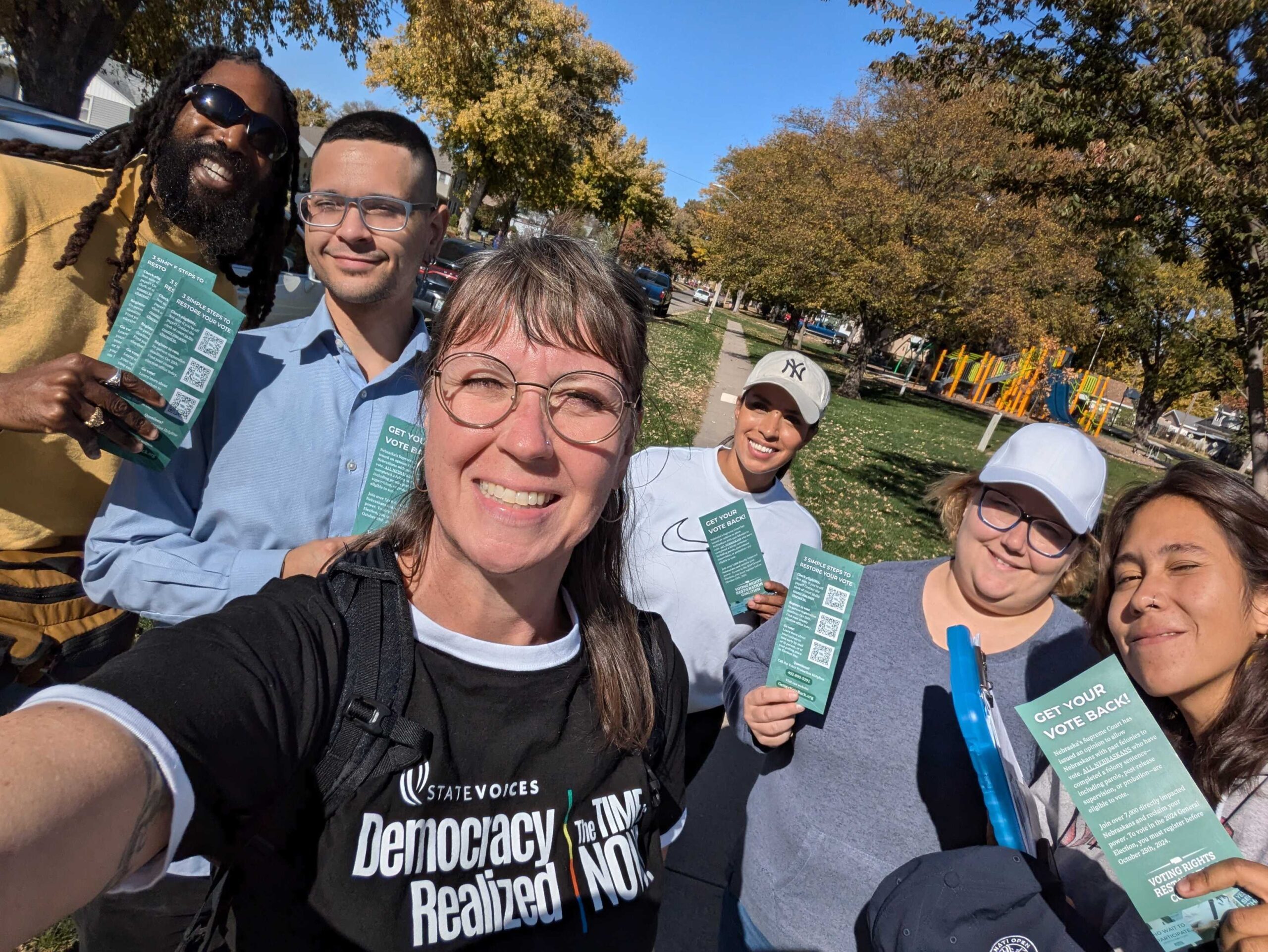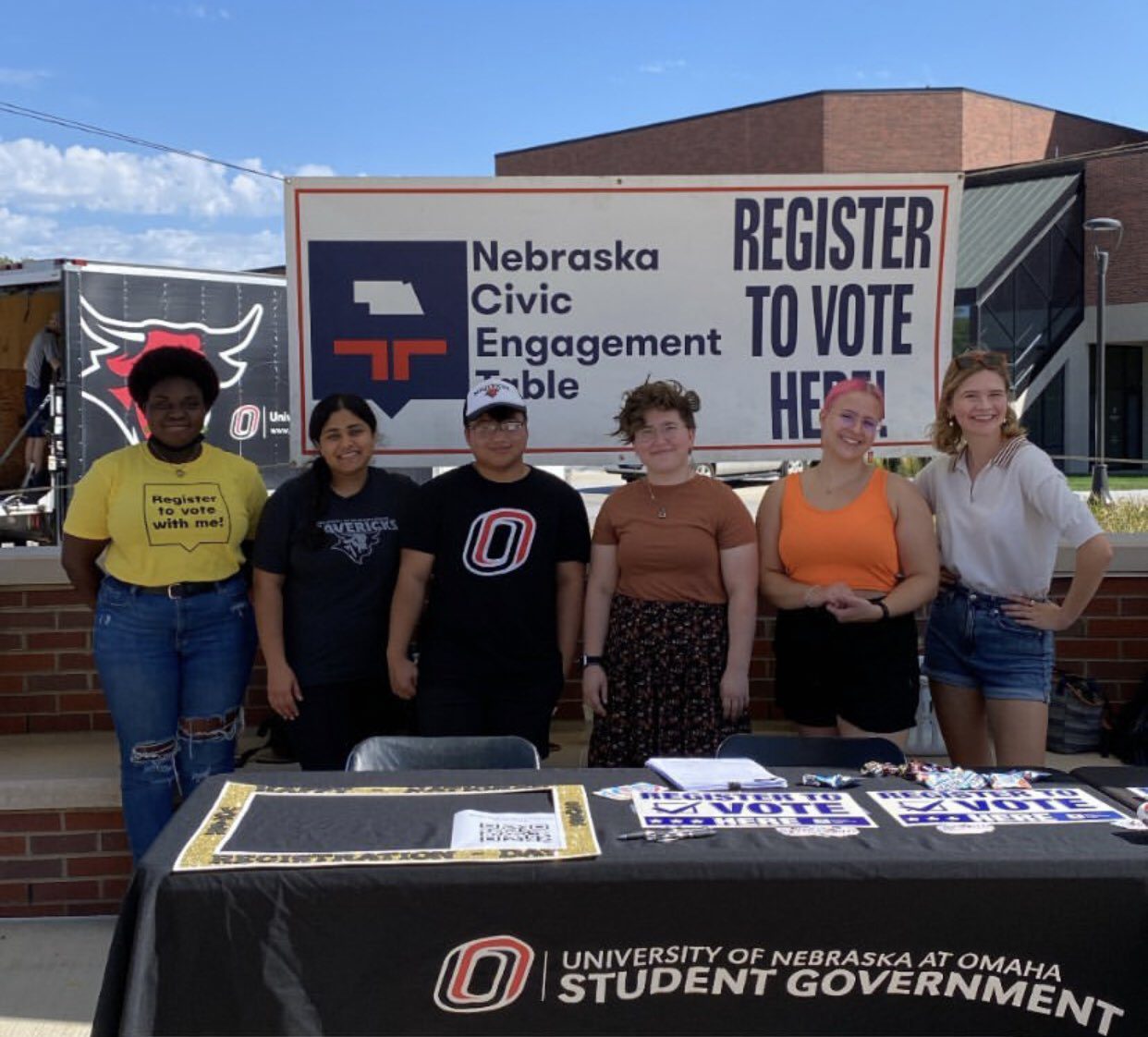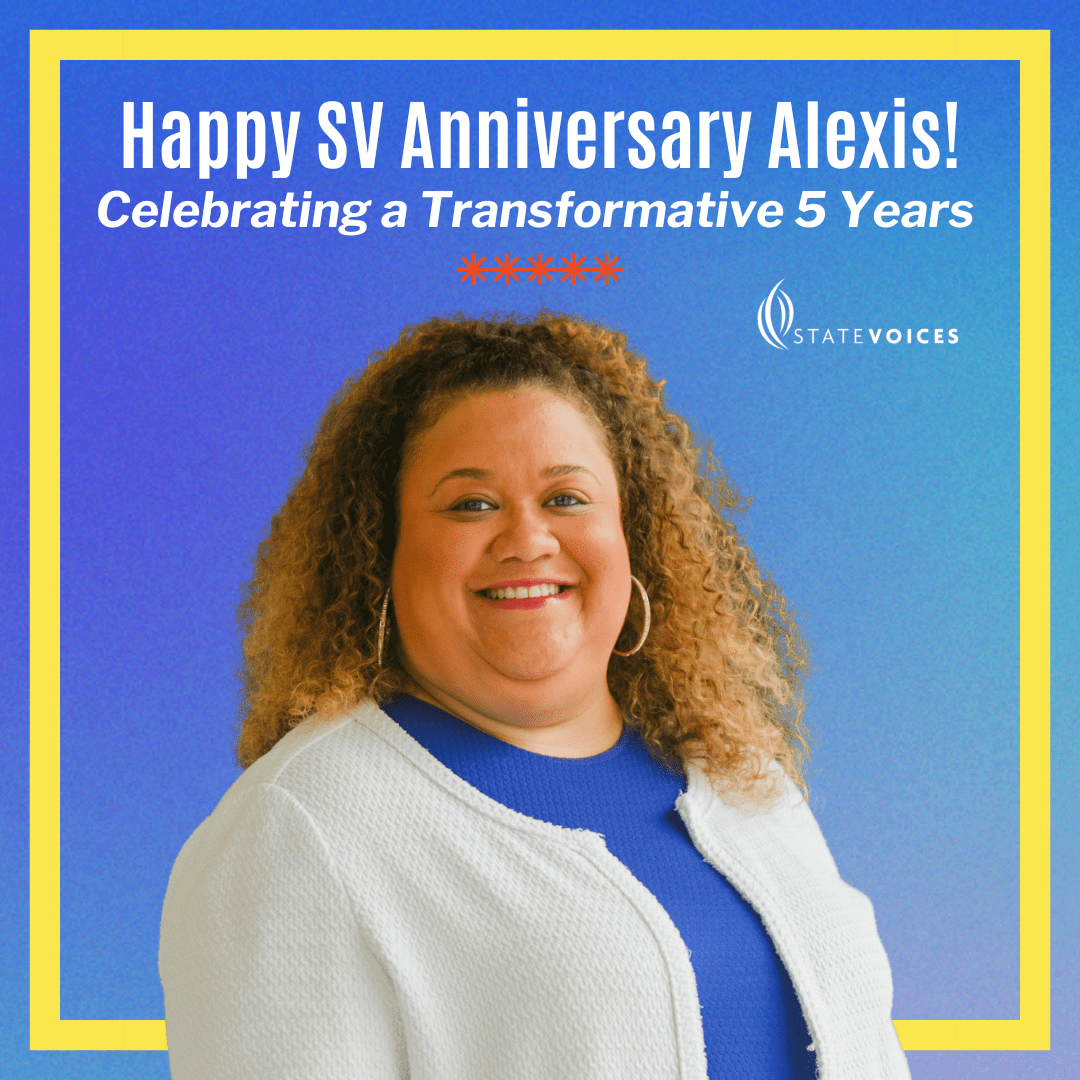Over the past five years, I have had the honor of leading State Voices, watching our Network grow in the fight for a multiracial democracy.
Soon after I joined State Voices as the Executive Director, we set out to chart a new strategic direction — it was time to radically reimagine the power of our Network for a more equitable future. Our organization is deeply committed to hearing the voices of our BIPOC communities and working to close the civic engagement gap so that communities of color can thrive in their full dignity.
Our Network now represents over $100 million annually in impact, with 25 State Tables, nine emerging Tables and over 1,200 partner organizations across the country. As I finish my fifth year at State Voices, I am embarking on a sabbatical through Q1 2024 and reflecting on all the experiences that got us here.
Long before I came to State Voices, I’ve been committed to our mission: The fight for liberation and a multiracial democracy is in my DNA.
I would visit my grandmother in Tennessee as a young girl, and she would show me the places that she wasn’t allowed to go because of the color of her skin. She fought for the right to vote and taught me that voting is connected to our freedom. I’ve been a full-fledged activist since college, when I co-founded Youth Reclaiming Our Communities (Youth ROC), to mobilize students across Wisconsin to demand equitable resources for our education. My personal history led me straight to State Voices.
I’ve been asking myself to increase my commitment to our movement.
I’m asking: What are we doing to support trans people from the anti-trans legislation and rhetoric that has been rising steadily throughout the year? What are we doing to stop the violence of policing, prisons and the legacy of slavery? What are we doing to protect immigrants from increased hatred and displacement? What are we doing to get land back to Indigenous people in the U.S. and across the world?
Now is the time to work together to strategize, plan, move resources and create sustainable infrastructure for movements that last and win.
As I reflect, I am so deeply proud of all that we’ve accomplished together in the past five years since I joined State Voices.
- We’ve grown in reach from 18 State Tables to 25 State Tables, with another set of nine emerging states seeking to join our coalition officially. We’ve also added an additional 400+ partners, widening our impact.
- In total, we’ve reached well over tens of millions voters since 2018 through all the incredible work of our organizers on the ground — door knocking, calling, texting and doing everything they can to reach communities of color where they are.
- We’ve also invested our dollars, regranting well over $24 million to the ground since 2018 to give state and local organizations the resources they need to carry out the work.
- And then there’s our bread and butter — our signature civic tech tools. Since 2018, we have expanded the number of civic tools we offer to our partners at no cost to 18, with more on the horizon.
It’s not only about the numbers, it’s about our people. As a Black woman, there aren’t a lot of people who look like me running organizations like State Voices. But within our Network, we center the leadership and voices of our Black, Indigenous, Latinx, Asian American & Pacific Islanders and all people of color. We also center women, young people and our low-income and LGBTQIA+ community. Just take a look at our leadership: 84% of our State Tables are led by women and 68% by women of color.
Our Network shows that when you center marginalized perspectives in the fight for a multiracial democracy, the wins benefit us all:
- In 2018, we launched our Strategic Direction process with a nine-month journey to identify our network’s direction for the next several years. The Strategic Direction, led by a committee of State Voices staff, state leaders, and Board members guided the organization towards our change model. The Strategic Direction process focused on answering five core ideas: our vision, our people, our structure, our power, and our theory of change.
- In 2019, we held our networks’ first convenings, bringing together our State Tables in Durham, NC and then in Albuquerque, NM to build relationships, gain political education, and collectively build our network-wide strategy.
- In 2020, we made over 228 million contacts to voters. We played a leading role in innovative Election Protection and Census and Get Out the Count (GOTC) efforts across the country, with critical successes in Florida, Ohio and Pennsylvania.
- In 2021, we launched the Project Power Up program — two-year funding and technical support to a cohort of State Tables to hire, train, and retain full-time core-capacity staff positions.
- In 2022, nine State Tables helped to secure critical ballot initiative wins, including but not limited to Louisiana and New Mexico on early childhood; Michigan on reproductive freedom; Kentucky protecting abortion; and Nebraska and Massachusetts on economic justice. Alabama, Tennessee, and Oregon also had wins on the ballot!
- In 2023, we celebrated voting rights accomplishments, like the first Native American Voting Rights Act in New Mexico with New Mexico Civic Engagement Table; and the incredible Supreme Court decision to secure fair representation in Allen v. Milligan — a case with plaintiffs in Alabama Forward like Khadidah Jones and Evan Milligan.
Our Network also shows how culture eats strategy for breakfast — by living our values, we can help shape the world we want to see.
In 2020 at the height of the COVID-19 pandemic, we knew what mattered most wasn’t external metrics, but how we took care of each other. We implemented more flexible hours and four-day work weeks, offered mental health support, did trainings on safety, and sent hundreds of thousands of dollars in PPE supplies to communities. We continue to have a flexible remote work policy, mid-year breaks, and a new sabbatical policy! Culture must be central to everything we do.
On this anniversary, I also want to look forward to the next five years. It’s vital that we double down on the fight for an equitable future where we count every vote, hear every voice and meet every need. We’ve made incredible progress, and now it’s time to double down on that momentum.
Next year we have a consequential election where our lives are on the ballot. With many potential presidential candidates starting to announce their intent to join the 2024 presidential race and the future of our democracy itself at risk, it’s time for our communities to be deeply heard — both in and out of presidential years.
As important as the 2024 presidential elections are, we know that we can’t only depend on elections to achieve freedom and democracy. Fighting for freedom is day in and day out, year to year. Now is the time for us to imagine what world we want to see, not only in 2024 and 2025 but in 2030 and 2040. Now is also the time for us to commit to what we are doing now to meet the needs of our people.
We can’t do this without you. With deep gratitude, I thank each and every one of you who have partnered with and invested in State Voices. I thank the State Voices staff who have gotten us here, and the staff that will continue steering us in the right direction as I embark on my sabbatical through Q1 2024.
I look forward to continuing to work with all of you to grow our Network and the political power of communities of color across the nation.
In solidarity,
Alexis Anderson-Reed




